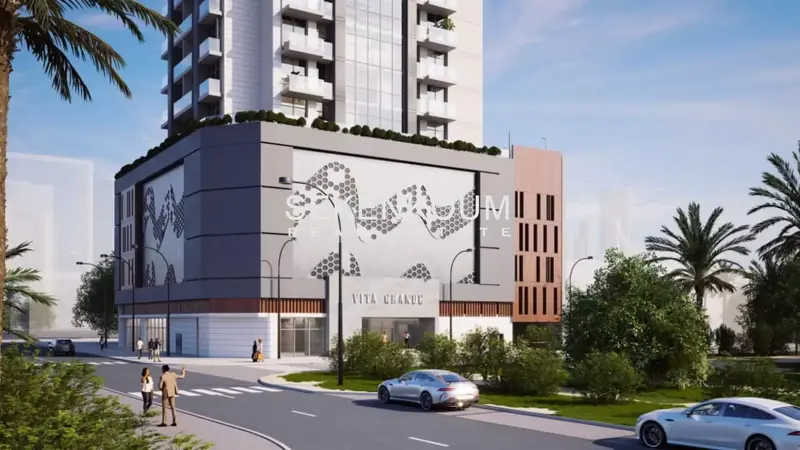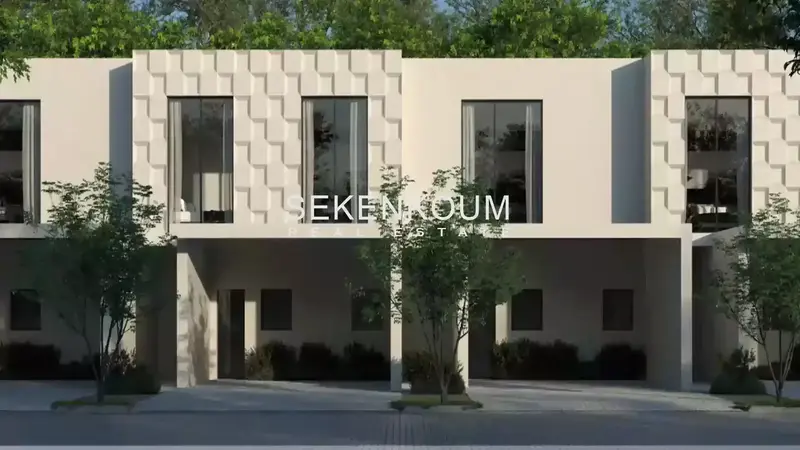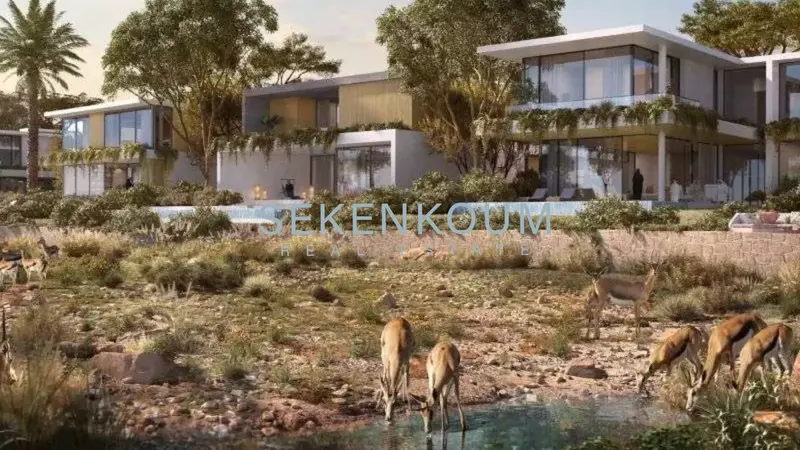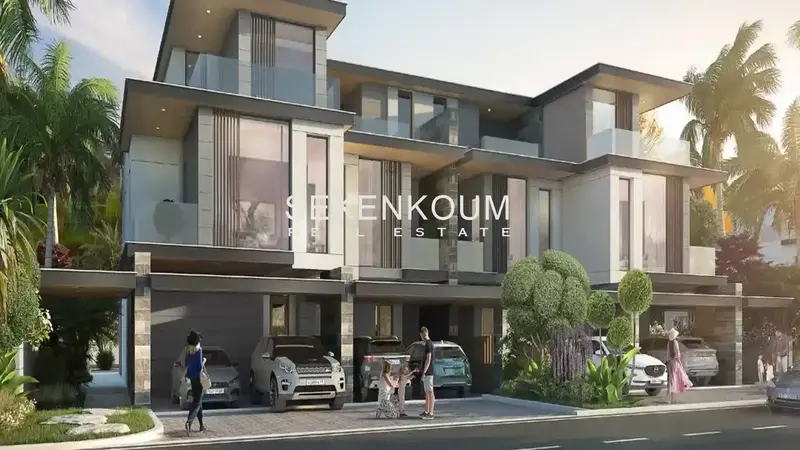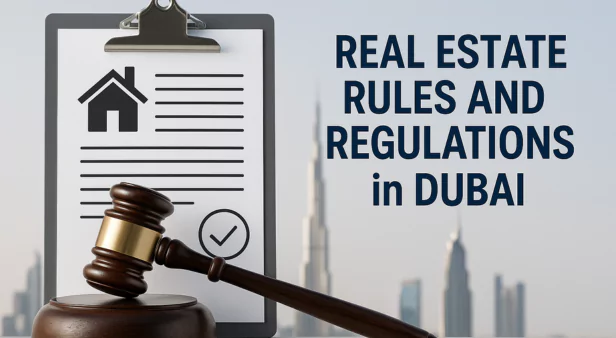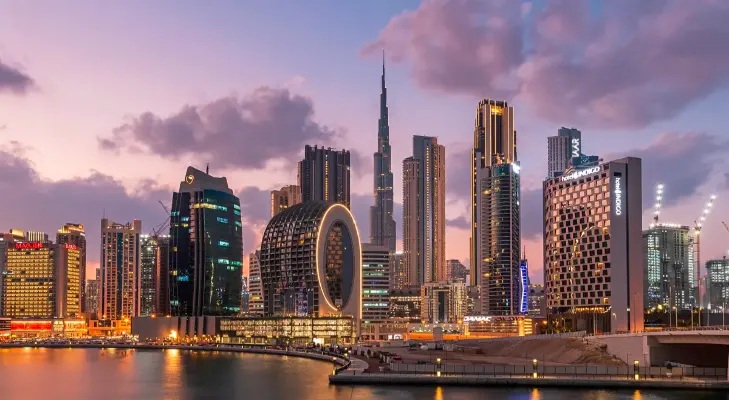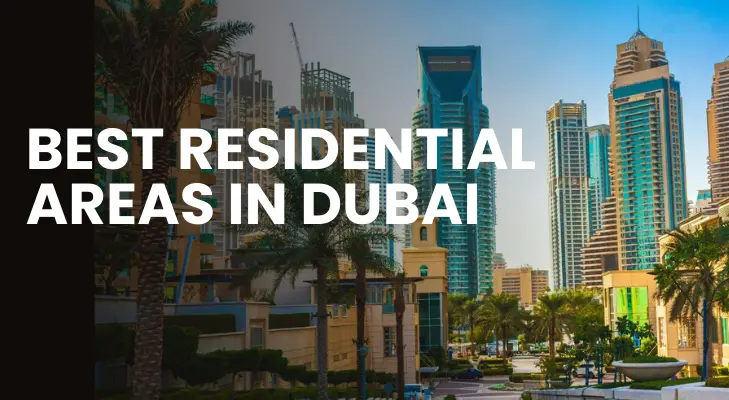Investor Sentiment in Dubai Real Estate During the Israel-Iran War: Trends and Insights
- Jun 18,2025

The Middle East has long been a region where geopolitical tensions influence markets across sectors—from energy to logistics and, increasingly, real estate
In the wake of the intensifying Israel-Iran conflict, investor sentiment across the region has become cautious and reactive. Yet, in the midst of this volatility, Dubai's real estate market stands out as a beacon of stability and strategic opportunity.
As the world watches the unfolding events with concern, investors, analysts, and property developers are asking a critical question:
How does this war affect Dubai’s real estate market? This blog explores investor sentiment during this critical time, highlighting emerging trends, key insights, and the reasons behind Dubai's sustained appeal in uncertain times
Dubai: A Regional Safe Haven Amidst Escalating Tensions
Historically, Dubai has positioned itself as a politically neutral and economically progressive city within a region often defined by its volatility. Its real estate sector has thrived partly because of this perception of neutrality and safety.
During the Israel-Iran conflict, this perception is only being reinforced. Unlike some neighboring countries that are either directly involved or at risk of economic spillover, Dubai offers a stable, secure, and investor-friendly environment. This has prompted many regional and international investors to shift or expand their real estate interests to the emirate.
Key Insight: Investors view Dubai not just as a luxury real estate hub, but as a safe capital preservation zone during regional crises.
Surge in High-Net-Worth Individual (HNWI) Investment
One of the most notable trends since the outbreak of the Israel-Iran conflict has been a marked increase in interest from high-net-worth individuals (HNWIs) from the broader Middle East region, including Lebanon, Jordan, Iraq, and even Israel and Iran themselves.
These investors are seeking:
- Asset diversification away from conflict zones
- Residency security via Golden Visa programs
- Stable rental yields in prime areas like Downtown Dubai, Dubai Marina, and Palm Jumeirah
Anecdotal evidence from major real estate firms in Dubai suggests that enquiries from Middle Eastern HNWIs have increased by 30–40% since the beginning of the conflict escalation in early 2025
Key Insight: Political instability is driving capital out of conflict-prone countries and into Dubai’s luxury residential and commercial segments.
Flight to Tangible Assets
War tends to trigger a psychological and financial shift among investors—from speculative markets (like stocks or crypto) to tangible assets such as gold and real estate. Dubai’s property market, known for its freehold offerings, high ROI, and world-class infrastructure, becomes an attractive alternative
Recent market data indicates:
- A 12% rise in off-plan property sales between March and May 2025
- Increased transaction volumes in luxury villas and branded residences
- Growing investor focus on asset-backed investments with rental yield potential
Moreover, developers like Emaar, Damac, and Sobha report stronger booking activity and faster off-plan sell-outs, particularly for waterfront and gated community projects.
Key Insight: Real estate is once again proving to be a preferred hedge against geopolitical instability.
Realignment of Gulf Investment Strategies
While UAE maintains diplomatic ties with both Western and regional powers, the Abraham Accords and the UAE’s nuanced stance on the Israel-Iran tensions play a role in maintaining investor confidence.
What’s notable is that GCC institutional investors and family offices are not pulling back. Instead, many are realigning their strategies to prioritize low-risk, high-return locations within the UAE, especially Dubai. Some have delayed investments in other regional cities and redirected those funds toward:
- Dubai’s commercial real estate (especially logistics and office parks)
- Mixed-use developments in fast-growing zones like Business Bay and JVC
- REITs and real estate funds focused on UAE assets
Key Insight: Dubai is emerging as a central node for regional capital reallocation as investors seek shelter from broader Gulf uncertainties.
Impact on Residential Rents and Yields
As the investor influx continues, the residential rental market is also seeing a significant boost. According to recent figures:
- Rents in areas like Dubai Hills Estate, Jumeirah Village Circle (JVC), and Arjan have seen double-digit growth since Q1 2025.
- Average rental yields for apartments remain between 6–8%, while luxury villas in gated communities yield around 5.5%—well above global averages
This has a dual impact:
- Investors from conflict zones are securing rental properties as safe havens for families
- Expats and professionals relocating from less stable regions are increasing rental demand
Key Insight: Investor sentiment is bolstered by strong rental returns, driven by population inflows and limited new inventory.
Concerns and Caution: Not All Optimism
While sentiment is largely positive, some investors remain cautious due to:
- Volatility in oil prices, which can impact regional spending and liquidity
- Supply chain disruptions affecting construction timelines
- Concerns over international sanctions potentially extending to financial systems
However, Dubai’s government has been proactive, ensuring:
- Strong regulatory oversight
- Support for digital and remote transactions
- Continued infrastructure spending and tourism promotion to stabilize the economy
Key Insight: The cautious optimism seen today is grounded in Dubai’s proactive policies and investor protections
Real Estate Developers Adapting to New Investor Needs
Developers are not sitting still. Understanding the shift in investor profiles and preferences due to regional instability, many are now:
- Accelerating launches of family-oriented, ready-to-move units
- Offering more flexible payment plans
- Promoting residency-linked property schemes to attract foreign buyers
Marketing campaigns are also being increasingly tailored toward diaspora communities, regional business families, and institutional investors in countries indirectly impacted by the Israel-Iran war.
Key Insight: Developers in Dubai are adapting quickly to match investor sentiment and capture redirected capital from the region
Role of the Golden Visa in Driving Sentiment
The UAE’s Golden Visa initiative continues to be a significant pull factor during times of regional crisis. For investors coming from politically volatile nations, the ability to gain:
- 10-year residency
- Freedom from income taxes
- Ease of business setup offers an unmatched combination
This has led to a surge in interest in properties valued above AED 2 million, the threshold for Golden Visa eligibility.
Key Insight: Residency incentives tied to property investments are amplifying Dubai’s appeal during regional conflict periods.
Technology and Virtual Transactions Fuel Remote Investment
One of the lesser-discussed but vital trends during this period is the role of digital property platforms and remote investment tools. Investors in countries affected by travel restrictions or conflict are still able to:
- View properties via virtual tours
- Complete transactions digitally
- Register properties online without physical presence
This ensures Dubai remains accessible to investors regardless of their geographic or political situation
Key Insight: PropTech is playing a critical role in sustaining investor sentiment during conflict-related disruptions
Outlook: Is Dubai Crisis-Proof?
While no market is entirely immune to geopolitical risk, Dubai has proven itself remarkably resilient. Its ability to attract global investors in times of regional uncertainty is not new, but the response to the current Israel-Iran war shows a maturity in both the market and its governance
Forecasts from major real estate consultancies suggest continued price growth in key segments, healthy rental demand, and more institutional capital flowing in from affected regions.
Conclusion
The Israel-Iran war has undoubtedly reshaped investor sentiment across the Middle East. However, Dubai real estate has emerged not only unscathed but reinforced in its position as the region’s most dependable investment destination
Investors are no longer simply looking for returns—they're looking for security, diversification, and continuity. Dubai offers all three, plus the added advantage of international connectivity and forward-thinking governance.
In this storm of uncertainty, Dubai is not just weathering the winds—it's attracting the ships.
